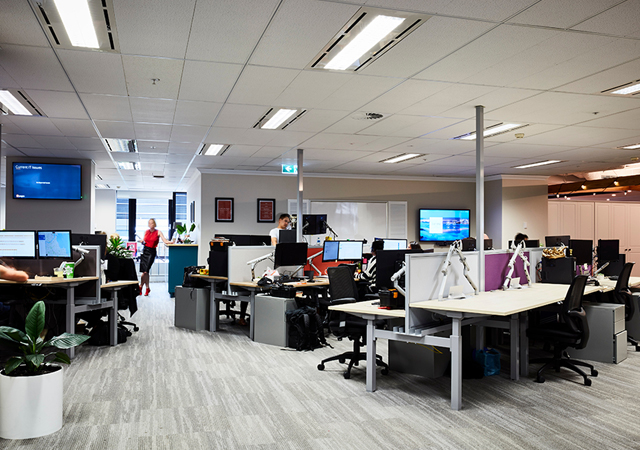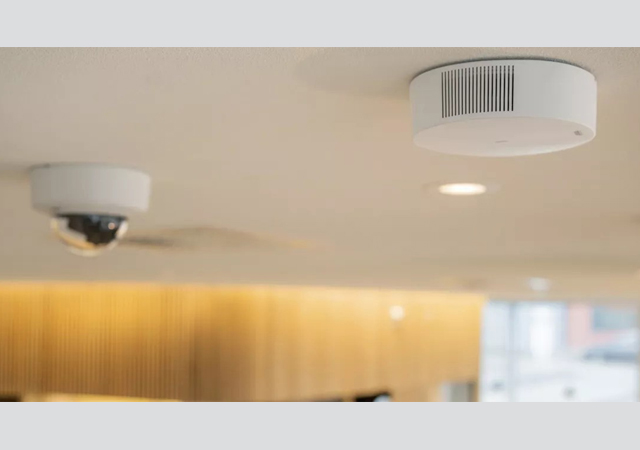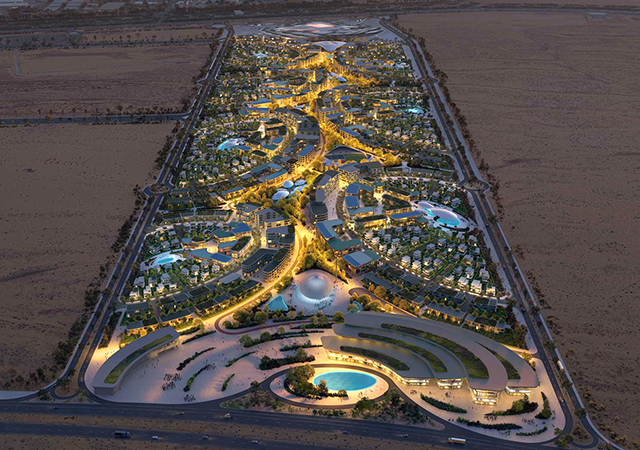
 The Portuguese pavilion at last year’s Big 5.
The Portuguese pavilion at last year’s Big 5.
PORTUGUESE firms intend to create a major impression on the construction market of the Middle East with global solutions and cutting-edge products when they participate at their country’s national pavilion at this year’s Big 5 show.
The pavilion, being organised jointly by the Portuguese Entrepreneurial Association (AEP) and Associaçao Portuguesa dos Industriais de Marmores, Granitos e Ramos Afins (Assimagra), will be hosting 17 companies that represent the construction and building materials industry.
“Portugal has been able to create superior products offering high quality, design and functionality, thanks to the latest technological enhancements that are focused on design and product development, and the launch of several brand names that are geared to meeting the real needs of foreign markets,” says Jorge Marcolino, project manager at the AEP. “The excellent tradition and know-how of the Portuguese construction and building materials industry ensures the finest products in the world.”
Having made significant investment towards excellence, innovation and design, Portuguese companies have been able to make major inroads into the export markets. “Portugal today is competent in supplying cutting-edge products offering high technical performance and global solutions tailored to today’s consumers,” he says.
This is the fourth time that Portugal is organising a national pavilion at The Big 5, says Marcolino, although the country has been represented at the show for more than a decade.
 |
|
Some 17 Portuguese companies will be present at this year’s Big 5. |
The AEP serves as a Portuguese business association and chamber of commerce and industry based in Porto. It is responsible for spearheading a variety of activities including trade fairs; exhibitions; congresses; information and support for businesses; consultancy; vocational training; trade missions; business and investment promotion; representation of the interests of its members; and reinforcing the role of business associations on both the national and international levels.
To help its members penetrate the global market, the association organises participation in trade fairs worldwide through national country pavilions, trade missions, showrooms, and business meetings, says Marcolino. He considers The Big 5 as the most important show in the construction sector in the entire Middle East, which is promoted extensively across the region.
Marcolino says Portuguese exhibitors at The Big 5 will aim primarily to establish long-term relations with local companies. “To attain this goal, first of all, we need to make our products and brands known in the market. We intend to take part in the projects the GCC has lined up, particularly those associated with the Fifa World Cup 2022.”
Recalling that Portugal had organised the Euro 2004 football championships, he says: “We possess great expertise in organising world-class events.”
With their sight set primarily on Qatar, Portuguese companies will be seeking importer/distributors in that market, Marcolino adds.
With regards to the region’s construction scene, Marcolino says the construction sector in the Middle East region is expanding, with investments being made in the hotels and leisure sector as well as developmental projects.
Commenting on the regional market, he says: “The construction sector is expanding rapidly, propelled by powerful GCC economies, a strong tourist industry, and a flourishing real estate sector. This, in turn, is creating growing demand for a complete range of building materials, equipment, technology, systems and machinery. We, as the main organisers of the national pavilion and promoters of the Portuguese presence in this event, want to tap some of these opportunities for our Portuguese members.”
The Middle East region is a highly attractive potential market for Portuguese companies, Marcolino adds.
“Combining an enviably sound economy with a considerable growth dynamic and high purchasing power of consumers, the Gulf markets should be seen by Portuguese entrepreneurs not merely as new opportunity markets, but also as one of the best options for globalisation, thus contributing to the vital diversification of Portuguese commercial trading,” he continues. “Boasting a strategic location in the Gulf, some of the countries such as the UAE enjoy easy access to other markets in the Middle East, Asia and Africa region which encompasses an area of about two billion consumers. “The economy growth of most of the GCC countries, which is expected to continue to surpass the world average rate – despite the current pressure on oil prices – clearly points to new business opportunities in a new economic zone, which is more and more integrated and which requires a new approach and an aggressive joint strategy.”
Bearing in mind these aspects of the Middle East markets and the potential of Portuguese companies, the AEP has “set up a project”, which aims to target these markets, especially the infrastructure and construction sectors in the GCC.
“Our ‘project’ consists of developing a number of basic and complementary activities for the Portuguese companies capable of boosting our exports to these markets.
In 2010, Portugal exported products worth approximately $25 million to Qatar, $75 million to the UAE, $15 million to Kuwait, and $70 million to Saudi Arabia, achieving a total of more than $193 million worth of exports to the entire GCC. More than 150 companies were involved mainly from the machinery and mechanical equipment sector, primarily for the construction industry,” he explains.
“Investment in these new markets presents a great challenge in an area of great expansion which is, at the same time, a gateway for business opportunities in the broader Middle East area and neighbouring countries,” he adds.
The Portuguese pavilion can be visited in Hall 2.






.jpg)









.jpg)




































.jpg)






